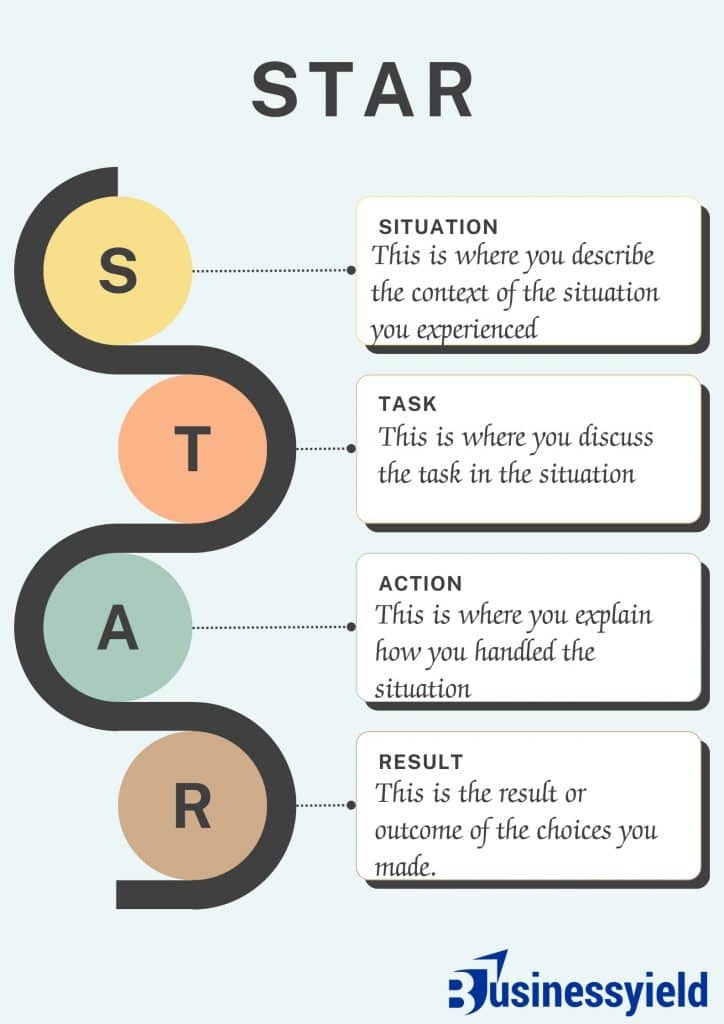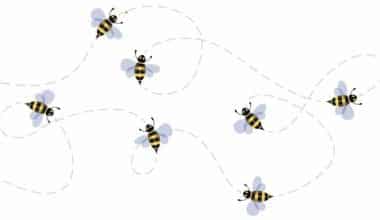It’s normal to feel nervous before an interview, but it’s helpful to have an idea of what to expect. When preparing for an interview, it is important to prepare yourself with some common interview questions. These questions help one learn more about their requirements and skills. Some time ago, I remember an interviewer asking me to talk about a tough project I managed during a marketing job interview.
Without stuttering, I proved myself to be tactful and problem-solving by speaking about a difficult campaign I managed. I was able to achieve success because I got myself ready ahead of time. So, it is important to make good impressions on potential employers by preparing for common interview questions and giving detailed replies.
Here, I will provide some questions and answers on behavioral, situational, and competency-based interview questions for an executive assistant.
Key points
- Every business has its unique interview questions but it is important to emphasize your previous specific outcomes and examples when answering interview questions for executive assistants.
- Behavioral interview questions focus on the previous behavior of someone applying for the position of executive assistant.
- Employers intentionally ask situational interview questions to assess how the candidate for the role manages real-life scenarios in the workplace, or how he managed similar situations in his past job
- Competency-based interview questions for executive assistants are used to examine how you handled a difficult task and other aspects of your past job.
- The STAR method is a great way to prepare answers to competency based and situational interview questions for executive assistants.
Interview Questions for Executive Assistant
An executive assistant typically assists key company executives in overseeing administration tasks and may also train office staff. The role of an executive assistant includes answering phone calls and emails, taking messages, directing call calls to the appropriate parties, and any other administrative task that assists the executive in doing their job effectively.
Every business might have unique interview questions concerning qualifications, requirements, and the executive you are to work for. However, I’d suggest that it is important to answer interview questions emphasizing specific outcomes and examples.
I had a particular experience when I was working with the HR team at Chloetech. We were recruiting for the position of executive assistant. During the interview, I asked a candidate, Mr. Thomas, some behavioral questions. I asked him how he would manage a difficult workload and handle conflicting priorities. He replied to the question with an insightful example of how he was able to handle multiple projects with competing deadlines. His response shows that he understands the importance of emphasizing specific outcomes.
He tackled the situation by discussing their approach to prioritization, which involves the use of the digital calendar and effective task management tools to stay organized and meet his deadlines. This response proved the candidate’s skills in problem-solving, which are the vital qualities an executive assistant needs.
Examples of Interview Questions for Executive Assistant
The following are several frequently asked questions that you might encounter during an executive assistant interview that will help you impress your employer, along with a few suggestions on how to answer them.
- Why do you want to be an executive assistant?
- How do you prioritize tasks on your typical workday as an executive assistant?
- How would you evaluate your computing skills?
- How do you deal with challenging people at work?
- Have you previously overseen other office staff members?
- How do you deal with stress and pressure?
- Give me an example of when you had to work with a team to resolve an issue for an executive.
- How do you anticipate the needs of an executive?
#1. Why Do You Want To Be an Executive Assistant?
This is a common question that will help the employer know your true motivations for applying for the post of executive assistant during interviews. They will also try to find out whether you are applying for a temporary job or if you want to make this your permanent job. Nevertheless, having witnessed several executive assistant interviews during my research, I will advise you to present factual, detailed information about your career goals and the factors that influenced your decision to become an executive assistant.
Example 1
I decided to apply for this role because I am convinced that I am highly skilled in organizing events, helping people in need, and working with others. Also, I am aware of the challenging task of working as an executive assistant every day. I’m looking forward to using my skills effectively while assisting one of your executives.
#2. How Do You Prioritize Your Workday Tasks?
Being an executive assistant requires you to be exceptionally organized and plan your days. Your prospective employer is interested in observing the process to determine whether or not it’s perfect for their requirements. When preparing for an interview for an executive assistant position, I’d suggest that you determine and prioritize some practices you have used effectively in the past or present that will help in organizing and setting priorities for the position you are applying for.
Example 2
I can quickly adjust to new tasks or initiatives when they arise. Also, I have been able to use a digital calendar and to-do list to organize my work and set priorities several times. I have also assessed my deadlines and prioritized the completion of the most important or difficult duties in the past.
Read Also: EXECUTIVE ADMINISTRATIVE ASSISTANT: Meaning, Salary, Duties, Interview Questions & Resume
Behavioral Interview Question for Executive Assistant
Behavioral interview questions focus on the previous behavior of someone applying for the position of executive assistant. These questions give the interviewer a sneak peek at the potential of a candidate and what their performance will be when they are hired. Again, I have provided some typical behavioral interview questions for an executive assistant.
#1. Can You Give an Example of How You Have Managed Conflicting Priorities?
It is a common responsibility for executive assistants to manage many tasks at the same time. The interviewer wants to know about your time management and prioritization skills when you are presented with several due dates at work. I advise that you give an example of how you were able to complete a tedious task on time despite your busy schedules.
#2. How Do You Handle Confidential Information?
In an executive assistant work environment, confidential discussions and documents are very common things you experience while working in this role. The interviewer would like to know how you will handle such sensitive information as an executive assistant. I suggest that you give an instance of where you were tasked with handling sensitive information and documents and how you managed to keep them safe.
Speaking of work environment, check out our article on The Ideal Work Environment
#3. How Do You Handle Challenging Personalities?
Executive assistants deal with high-ranking executives, customers, suppliers, and dignitaries, and they are likely to face difficult people at work. When you are interviewed with this question, the interviewer requires you to respond to challenging situations and keep a positive and calm attitude. Here’s my suggestion: give an example of a difficult client you handled and the steps you took to achieve that.
#4. Can You Give an Example of a Project You Managed from Start to Finish?
It is very common for an executive assistant to be in charge of a project from start to finish. When you are thrown with such questions, the interviewer’s interest is to learn about your skills in managing projects, problem-solving, communication, and other skills. I advise that you talk about a project you handled in the past and the steps you took to guarantee its success.
#5. How Do You Stay Organized and Manage Your Workload?
As an executive assistant, you have the responsibility of organizing and scheduling meetings, among other administrative duties. The interviewer will be interested in your ability to organize and manage tasks efficiently. You are required to give an example of how you were responsible for many tasks and the techniques you used to solve them.
BusinessYield Checklist on How to Answer Behavioral Interview Questions for Executive Assistants
Read Also: Virtual Administrative Assistant: Jobs, Services, Companies, Requirements & All You Need.
Situational Questions for Executive Assistant Interview
Situational interview questions for an executive assistant position are made intentionally to assess how you will manage real-life scenarios in the workplace or how you have managed similar situations in your past job. Applying for an executive assistant role requires that you prepare to answer a lot of questions that may be situational.
To be able to answer these questions with well-thought-out points, I recommend using the STAR approach (situation, task, action, result). This strategy assists you in answering the interview questions logically by stating a problem and explaining how you overcame it. Here is an example that includes my experience to help you apply the star method when answering situational interview questions for an executive assistant position.
Example
I recall being attentive in an interview for executive assistants at a company I worked in. I paid attention to an applicant, Susan, who was later hired. She was asked how she would manage competing priorities. She narrated a situation where she supported multiple executives with conflicting deadlines. Susan described her task as organizing her workload and prioritizing. For her action, she stated how she uses time management tools like calendar to-do lists to communicate proactively with executives to clarify their expectations and negotiate deadlines. In the end, the result portrays how she successfully managed her workload by meeting deadlines and maintaining effective communication with the executives.
Common Situational Interview Questions
- Describe how you were able to handle a difficult customer.
- What did you do when you took on a leadership role you weren’t trained for?
- What did you do when you were faced with a challenging decision without having much information?
- Share a time you had to manage stress to meet a difficult deadline.
Read Also: OFFICE ASSISTANT: Definition, Duties, Salary & Resume
Competency Based Questions for Executive Assistant Interview
Competency-based interview questions for executive assistants are used to examine how you handled a difficult task and other aspects of your past job. Employers will use these questions to find out information in some areas where you applied your skills and actions in your past workplace. While researching this topic, I witnessed an interview where I observed an executive assistant applicant answered one of the competency-based questions.
The interviewer requests that he share his experience handling a difficult task. His response on how hard he was able to stay focused and worked for long hours despite short notice yet was able to meet his deadlines helped the interviewer identify his skills in organization and time management.
The Most Common Competency Based Quetions For Executive Assistant
Always prepare for competency-based questions when you are getting ready for an executive assistant interview. You need to become familiar with the questions and practice your answers. Practicing your answers will make you more confident when these questions find their way to you. Moreover, the appropriate answers help the candidate excel in their interviews. Below are some competency-based interview questions for executive assistants.
- When have you completed a challenging task as part of a team, and how?
- Give an example of when you positively contributed to your team
- Have you ever dealt with negative reports from an employer, or fellow worker? How did you handle it?
- Have you handled a major crisis before? How did you handle it?
- Have you ever been in a position to make big decisions for your team? What was the outcome?
- Give an example of when you had to change plans at the last minute. And what was the outcome?
- Have you ever handled a conflict successfully in your previous job?
- What has been your biggest failure?
- What will you say is your biggest achievement at the workplace?
How to Answer Competency-Based Questions for Executive Assistant
When you apply for the post of executive assistant, you are likely to experience the use of competency-based questions during the interview. It is important to know how to go about these questions because it is easy to go off-point when providing many details. I recommend the STAR method as a great way to prepare answers to competency-based questions. This method permits you to describe effective and clear examples that show your skills and abilities.
I applied the STAR method when I was interviewed in the past for the post of executive assistant at Glitech Inc. I showed my skills and abilities while describing how I handled difficult situations in my previous workplace. For better understanding, I will use this event at Glitech to explain how to use the STAR method to answer competency-based interview questions for executive assistants.

#1. Situation
This is where you describe the context of the situation you experienced. I suggest you keep the response here brief because some interviewers just want to know your process and results. I will use the question below to share my personal experience during an interview at Glitech to help you understand competency-based questions using the STAR( situation, task, action, result).
Question: When have you completed a challenging task as part of a team, and how?
Some time ago, I had a difficult experience that required strategic planning and solid communication skills when I was working as an executive assistant at Top Premier Inc. This was due to a major restructuring that led to an increase in workload and conflicting goals among team members. To handle everything, I maintained operational effectiveness in my role and handled important tasks before the deadline.
#2. Task
Here you will discuss your task in the situation, which includes the goals you had for the situation. Moreover, I will advise you to make your answers concise and provide context for the rest of them.
I reorganized the executive team’s workflow, which was my main task, and prioritized tasks according to their importance and how they affect the company’s goals. I aimed to improve collaboration, streamline operations, and prevent disruption during the restructuring phase. In addition, I have the responsibility of maintaining open communication channels with team members to enable them to address any issues or challenges they faced during that transition period
#3. Action
Tell the interviewer how you handled the situation. Explain what you did and how you did it in detail. Also, give examples of the actions you took and state the reasons that made it the best choice.
I handled the situation by performing an in-depth assessment of the existing workflow to find out the areas that needed immediate attention. Afterward, I collaborated with team members to create a revised workflow that prioritized tasks according to their importance and deadline. Making sure that everyone agrees with the new workflow, requires reallocating resources, delegating tasks efficiently, and implementing new communication protocols. I took a specific action to introduce a project management app that enabled the team members to monitor their tasks, deadlines, and progress in real time.
Surely, this promoted more teamwork, and improved transparency and accountability among team members.
#4. Result
This is the result or outcome of the choices you made. Be specific when presenting examples of how you impacted your initiatives as an executive assistant. Finally, you can share what you learned from performing the task and how it developed your role as an executive assistant.
The executive workflow improved based on the results of the actions utilized. Afterward, this led to a 20% increase in productivity and a 15% reduction in recovery time for key projects. Consequently, the restructuring phase was done before the deadline, and the team transitioned easily to the new workflow. Indeed, this made team morale grow, and they felt more involved and empowered to contribute to the success of the company.
I learned from this interview experience how important it is to be proactive in your planning, how to communicate clearly, and how to be flexible while handling difficult situations in your role as an executive assistant. Moreover, it emphasized how important cooperation and teamwork are to accomplishing common goals.
Conclusion
Finally, questions asked when interviewing for the position of executive assistant can differ. Moreover, these questions help to assess diverse aspects of the applicant’s skills. Every business has its own unique set of questions, but the majority will focus on past results and key examples of the applicant’s success story in his previous job.
So, behavioral interview questions tend to focus on the candidate’s behavior, which predicts his future performance, while situational questions also assess how he handles real-life challenges. In addition, the star method (situation, task, action, result) is an effective approach that helps candidates structure their responses when answering competency-based interview questions for executive assistants. It helps to showcase the candidate’s qualifications and suitability for the role of executive assistant.
What Are the Top 3 Strengths for Executive Assistant?
The following are the top three strengths of an executive assistant:
- Organization
- Communication
- Time management
What Is the Star Method for Executive Assistant Interview?
The star method assists you in understanding how to handle a specific situation that commonly occurs when working as an executive assistant. The star method, in short, means
- Situation
- Task
- Action
- Result
What Is Your Weakness as an Executive Assistant?
The weakness of an executive assistant is that they may find it difficult to delegate tasks.
What Does a CEO Look for in an Executive Assistant?
- The CEO looks for innovative skills in an executive assistant.
- Resourcefulness
- An independent thinker
- A good decision-maker
- Ability to think and work under pressure and come out with good outcomes in the end.






